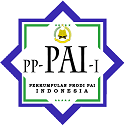Integrating Naqli and Aqli Science in Islamic Education: Toward a Comprehensive Learning Model
Abstract
Keywords
Full Text:
82-96References
A. Yunus, & Kosmajadi. (2015). Filsafat Pendidikan Islam. Majalengka: Universitas Majalengka Press.
Abdullah, A. S. (1990). Teori-Teori Pendidikan Berdasarkan Al-Qur’an. Jakarta: Rineka Cipta.
Achruh, A., & et al. (2021). The Perspective of Islamic Education to Educational Method. Lentera Pendidikan: Jurnal Ilmu Tarbiyah dan Keguruan, 24(1), 115.
al-Abrasyi, M. A. (1993). Dasar-Dasar Pokok Pendidikan Islam, trans. Bustami A. Ghani and Djohar Bahry. (B. A. Bahry, Trans.) Jakarta: Bulan Bintang.
Ali, M. (1992). Pengembangan Kurikulum di Sekolah. Bandung: Sinar Baru.
al-Syaibany, O. M. (1979). Falsafah Pendidikan Islam. Jakarta: Bulan Bintang.
Amma, T. (2018). Problematika Proses Pembelajaran Pendidikan Agama Islam. Al I’tibar: Jurnal Pendidikan Islam, 5(2), 78.
Arifin, S., & Nurdiansyah, N. M. (2022). Modernization of Education: A New Approach and Method in Learning Islamic Religious Education. Tadris: Jurnal Pendidikan Islam, 17(1), 100.
Ashraf, A. (1991). Horison Baru Pendidikan Islam. (S. Siregar, Trans.) Jakarta: Pustaka Firdaus.
Bakar, M. A., & et al. (2023). Improving Quality Islamic Education for Today's Generation. At-Tadzkir: Islamic Education, 2(2), 122.
Ekowijayanto, M. (2020). The Integration of Islamic Values in Implementation of Learning English: Islamic Education Students Perspective. At-Tarbiyah: Journal of Islamic Education, 6(1), 22.
Fahrudin, A., & Ichsan, A. S. (2021). Pembelajaran Konvensional dan Kritis Kreatif dalam Perspektif Pendidikan Islam. Hikmah, 18(1), 77.
Fajarani, R., & et al. (2021). Manajemen Sarana dan Prasarana dalam Meningkatkan Proses Pembelajaran dalam Pendidikan Islam. Jurnal Pendidikan Indonesia (Japendi), 2(7), 1241.
Fatah, A., & Lestari. (2020). Nalar Filsafat Pendidikan Islam: Konsepsi, Tantangan, Dan Pemikiran Religius-Nasional. Mataram: LP2M UIN Mataram.
Fattah, A. (2020). Nalar Filsafat Pendidikan Islam: Konsepsi, Tantangan, Dan Pemikiran Religius-Nasional. Mataram: LP2M UIN Mataram.
Febriani, A. (2022). Seven Steps of the Implementation of Mind Mapping Method in Learning of Islamic Education. Khalifa: Journal of Islamic Education, 29.
Febriani, A., & et al. (2022). Seven Steps of the Implementation of Mind Mapping Method in Learning of Islamic Education. Khalifa: Journal of Islamic Education, 6(1), 28.
Firdaus, M. (2020). Integrasi Ilmu Agama dan Ilmu Umum. Ciputat: Yayasan Soebono Mantofani.
Harahap, M., & et al. (2018). Konsep Evaluasi dalam Pembelajaran Pendidikan Islam. Jurnal Al-Thariqah, 3(1), 52.
Hidayat, T., & et al. (2023). Techniques and Steps of Islamic Education Learning Development: Integration of Islamic Values in Learning. Halaqa: Islamic Education Journal, 7(2), 86.
Hisbullah. (2020). Problems and Crisis of Islamic Education Today and in the Future. International Journal of Asian Education, 1(1), 22.
Hisbullah. (2020). Problems and Crisis of Islamic Education Today and in the Future. International Journal of Asian Education, 1(1), 22.
Kartanegara, M. (2002). Menembus Batas Waktu: Panorama Filsafat Islam. Bandung: Mizan.
Lubis, M. A. (2015). Effective Implementation of the Integrated Islamic Education. Global Journal Al-Thaqafah, 5(1), 59-60.
Lubis, M. A., & et al. (2011). The Perception and Method in Teaching and Learning Islamic Education. International Journal of Education and Information Technologies, 5(1), 70.
Mahmudi, & et al., (2022). Integration of Science and Religion. Qalamuna: Jurnal Pendidikan, Sosial, dan Agama, 14(1), 310.
Mukarom, Z., & et al. (2024). Islamic Education Curriculum Innovation in the Digital Era:. International Education Trend Issues, 2(2), 322-323.
Murray, & et al., (1993). Teori-Teori Holistik: Organismik-Fenomenologis. (Supratiknya, Ed.) Yogyakarta: Kanisius.
Nasr, S. H. (1976). Man and Nature: The Spiritual Crisis of Modern Man. London: Geoge Allen & Unwin, Ltd.
Nasution, S. (1982). Asas-Asas Kurikulum. Bandung: Jemmars.
Nata, A. (2001). Paradigma Pendidikan Islam. Jakarta: Grasindo.
Nata, A. (2005). Filsafat Pendidikan Islam. Jakarta: Logos.
Puspitasari, F. F. (2020). The Integration-Interconnection Discourse of Islamic Education and Science in Indonesia. Jurnal Tarbawi STAI Al Fithrah, 153, 155.
Rofiq, M. N. (2017). Integrasi Ilmu Agama Dan Sain Dalam Praksis Pendidikan. Falasifa, 8(1), 136.
Ruslan. (2010). Integrasi Agama dalam Pembelajaran Sains: Studi Kasus di MAN 4 Model Jakarta. Jakarta: SPS UIN Jakarta.
Shidqiyah, & et al. (2024). Improving The Quality of Islamic Education Through an Integrated. Indonesian Journal of Education (INJOE), 4(3), 874.
Sudrajat, A. (2008). Pengertian Pendekatan, Strategi, Metode, Teknik dan Model Pembelajaran. Bandung: Sinar Baru Algensindo.
Taher, M. T. (2018). Integrasi Agama dan Sains di Madrasah: Studi Kasus di Madrasah Aliyah Mu’allimin Nahdlatul Wathan Pancor. Jakarta: Pascasarjana Universitas Syarif Hidayatullah.
Tolchah, M. (2019). Islamic Education in the Globalization Era: Challenges, Opportunities, and Contribution of Islamic Education in Indonesia. Humanities & Social Sciences Reviews, 1036.
Tolchah, M., & Mu'amar, M. A. (2019). Islamic Education in the Globalization Era: Challenges, Opportunities, and Contribution of Islamic Education in Indonesia. Humanities & Social Sciences Reviews, 7(4), 1037.
Traphagan, J. W. (2020). Religion, Science, and Space Exploration from a Non-Western Perspective. religions, 11(397), 1.
Wanida, A., & Anwar, A. (2024). Integrasi Ilmu Agama dengan Ilmu Pengetahuan Umum: Islamisasi Ilmu. Jurnal Ilmiah Ilmu Pendidikan, 7(3), 2392.
DOI: https://doi.org/10.18860/jpai.v11i2.31447
Refbacks
- There are currently no refbacks.
Copyright (c) 2025 Wawan Saepul Bahri, Muhammad Zuhdi, Suparto
License URL: https://creativecommons.org/licenses/by-sa/4.0/
...............................................................................................................................................................
Editorial Office:
Fakultas Ilmu Tarbiyah dan Keguruan
Universitas Islam Negeri Maulana Malik Ibrahim Malang
Jalan Gajayana 50 Malang, Jawa Timur, Indonesia 65144
Phone (0341) 552398, Faximile (0341) 552398
E-mail: jpai@uin-malang.ac.id
...............................................................................................................................................................

J-PAI: Jurnal Pendidikan Agama Islam is licensed under a CC BY-SA 4.0.
...............................................................................................................................................................
Indexed by:

















